4 Things Every Student Should Do Every Day
From asking questions to feeling a sense of progress, here’s a quick list of things that every student should do every day.
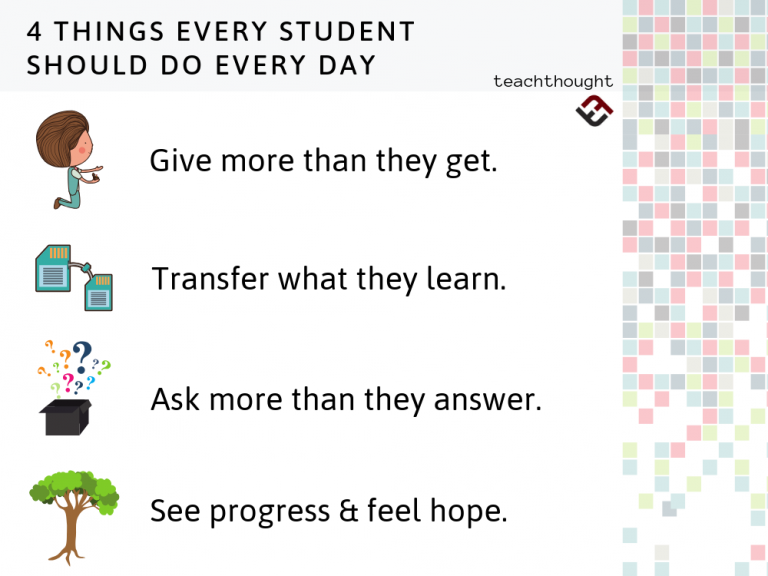
From asking questions to feeling a sense of progress, here’s a quick list of things that every student should do every day.
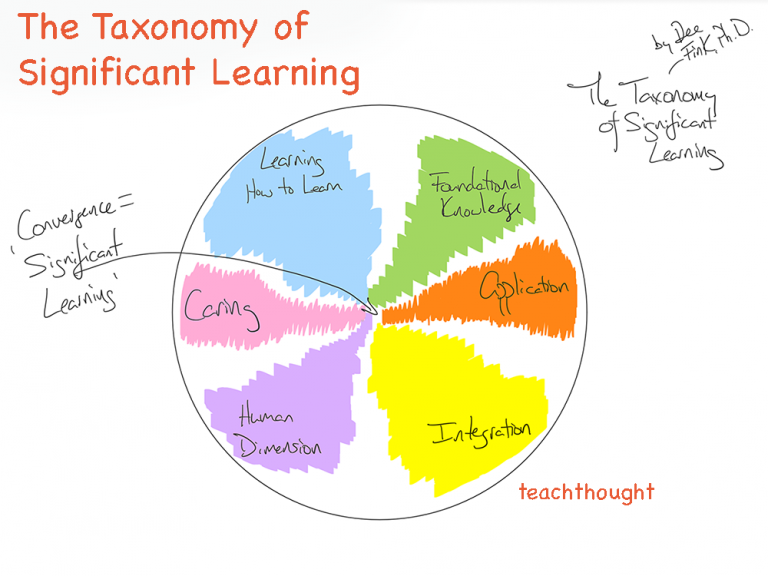
The Taxonomy Of Significant Learning is useful for making design considerations for student learning experiences.
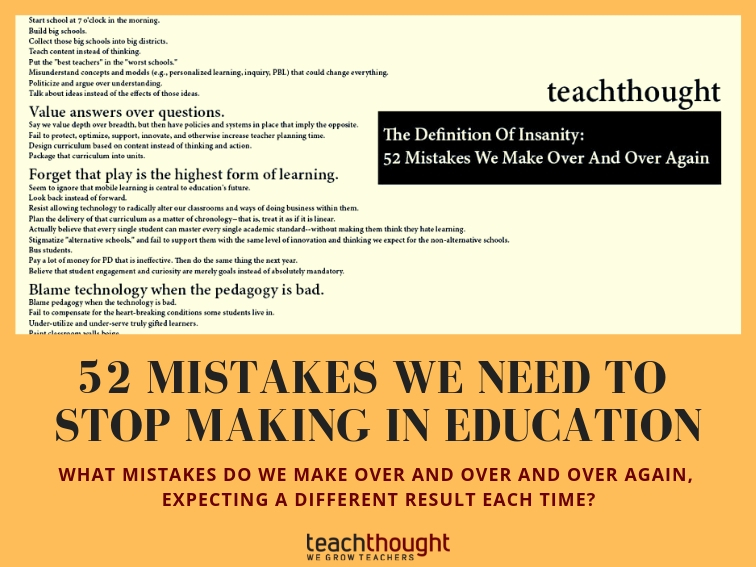
We Need To Stop Making These Mistakes In Education by Terry Heick The context for this one is simple enough–what mistakes do we constantly make in education that hold us back from the best versions of ourselves? From realizing our collective potential as a construct, field, and industry? What mistakes do we make over and over…
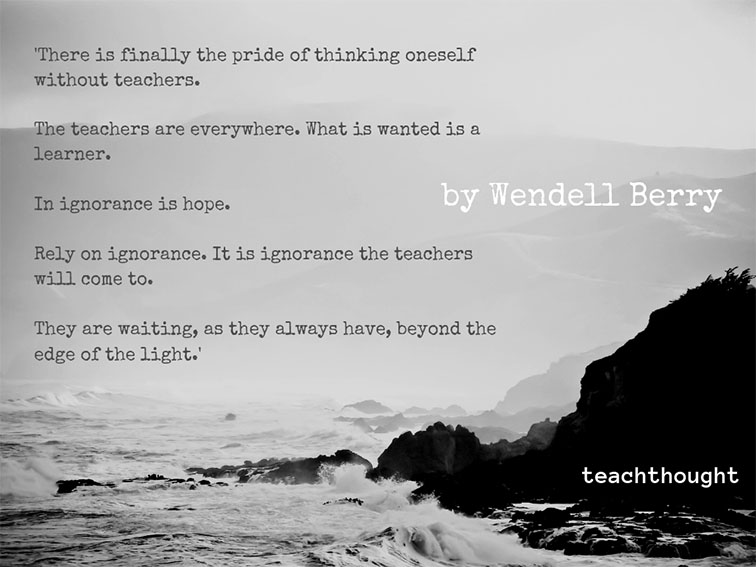
“There is finally the pride of thinking oneself without teachers. The teachers are everywhere. What is wanted is a learner.”
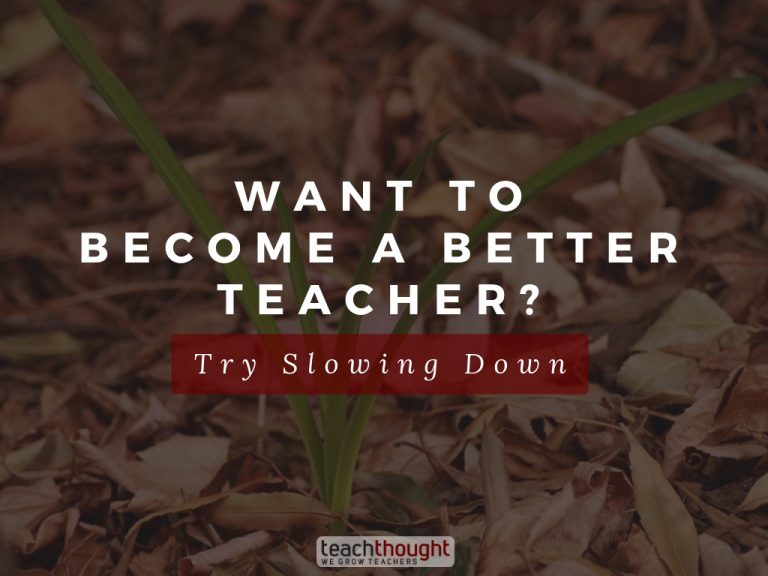
All of education may seem like it is trying to exert its will on your classroom. Let it push. Try slowing down. Growing things takes time.
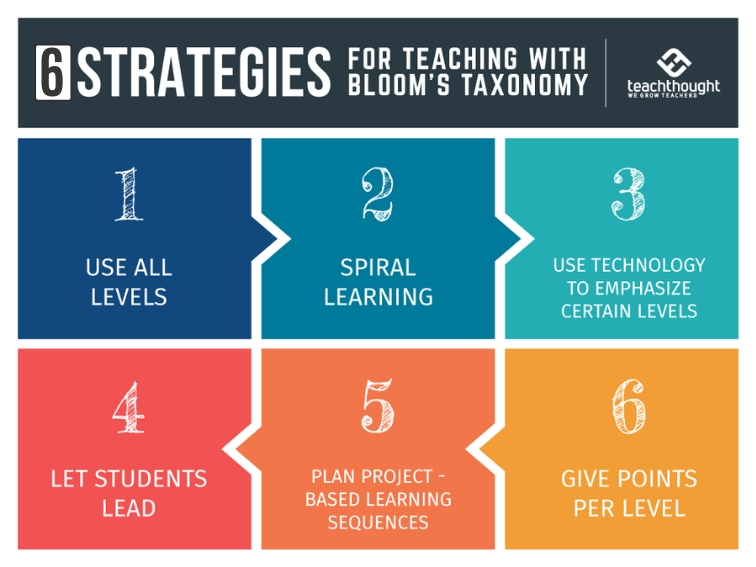
Bloom’s Spiraling is the process of starting first at lower levels of Bloom’s–recalling, defining, explaining, etc.–and then progressively increasing the level of thinking.
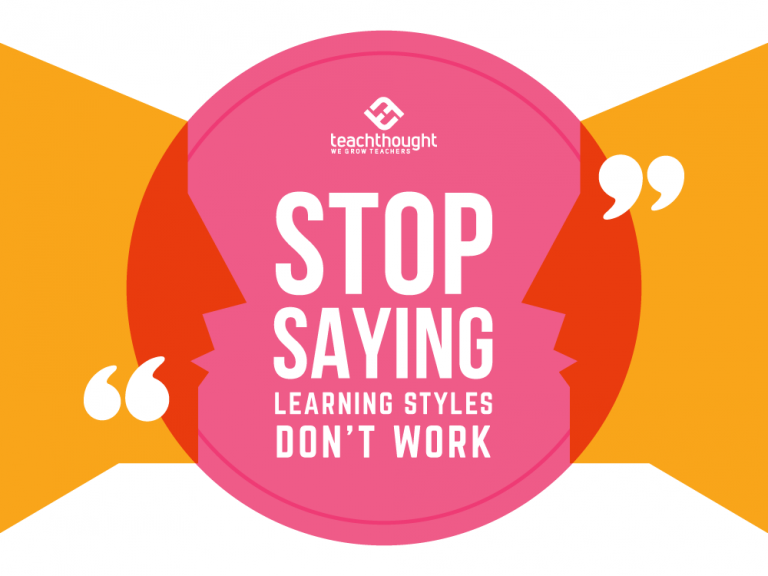
Somehow, the idea that one student learns best by listening and another while doing jumping jacks has come to define learning styles.
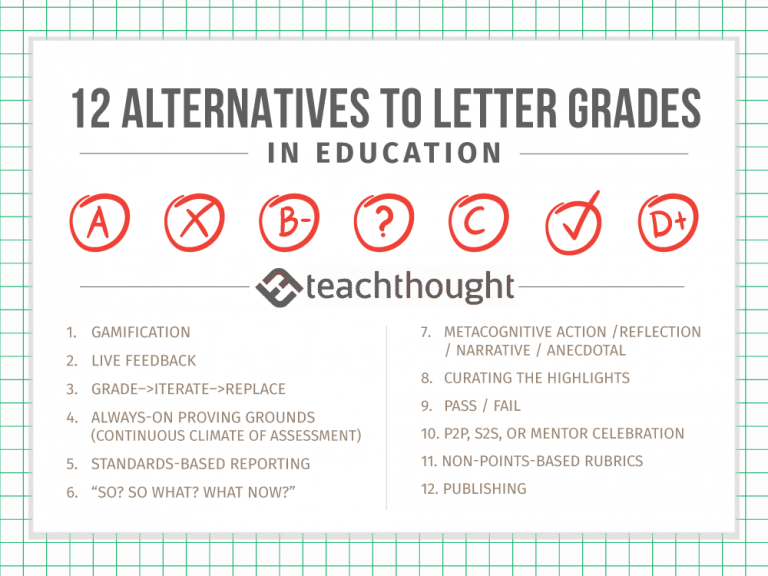
In this alternative to letter grades, work is first graded and then, through revision and iteration, is gradually improved and ultimately curated.
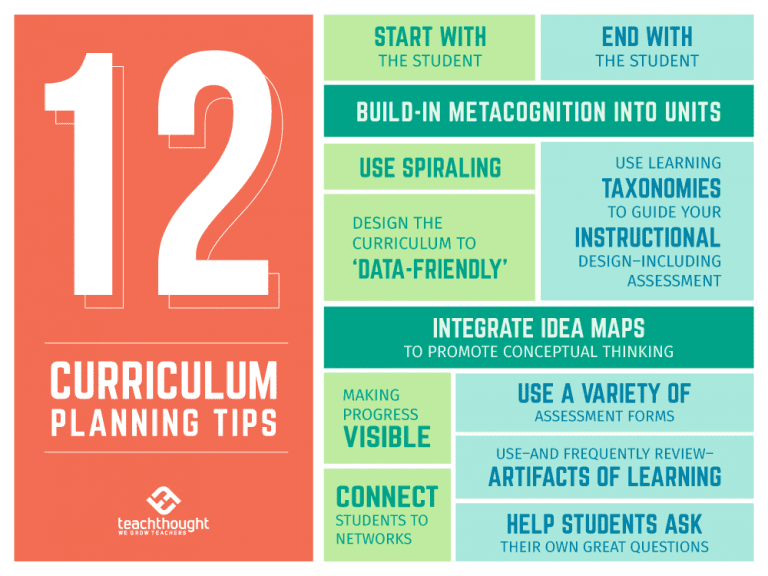
By exposing students to critical content over and over again in increasingly complex ways, spiraling is a flexible and potent curriculum mapping strategy.
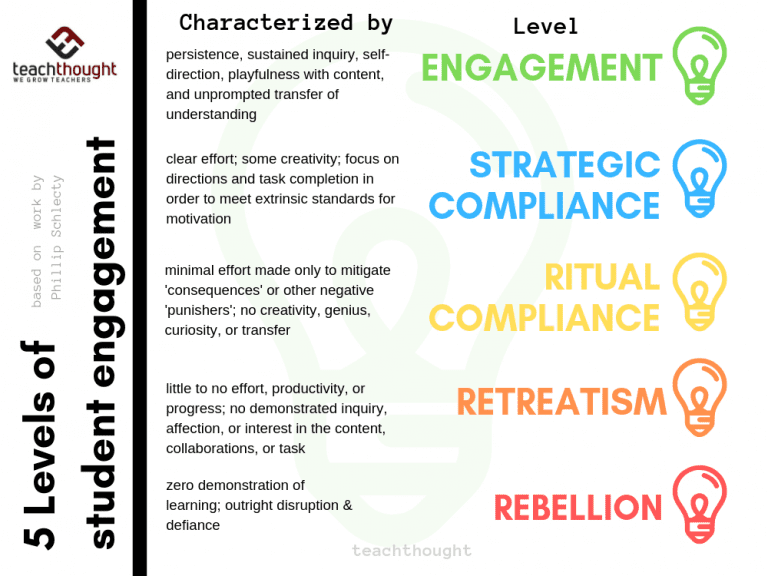
It was already clear that students want to ‘do well’ for different reasons but now I could see a fuller continuum of student engagement.
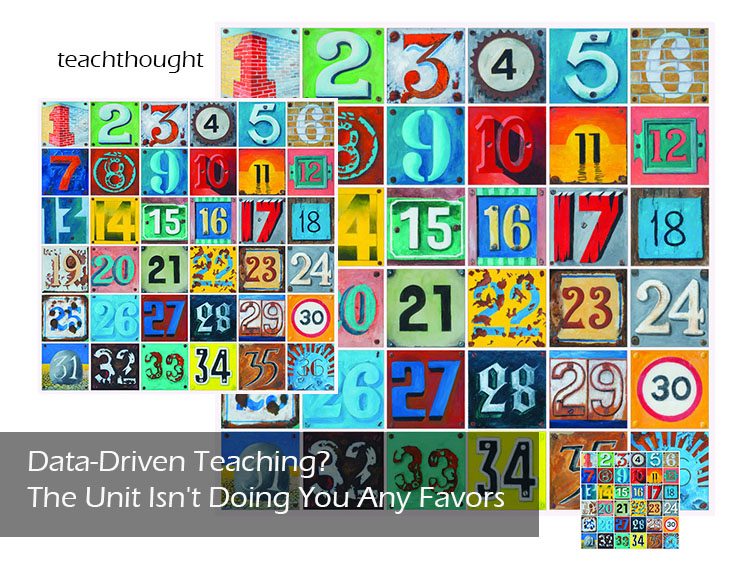
If we insist on outcomes-based, data-driven teaching, the traditional unit—at least in its current guise—has no business in our classrooms.
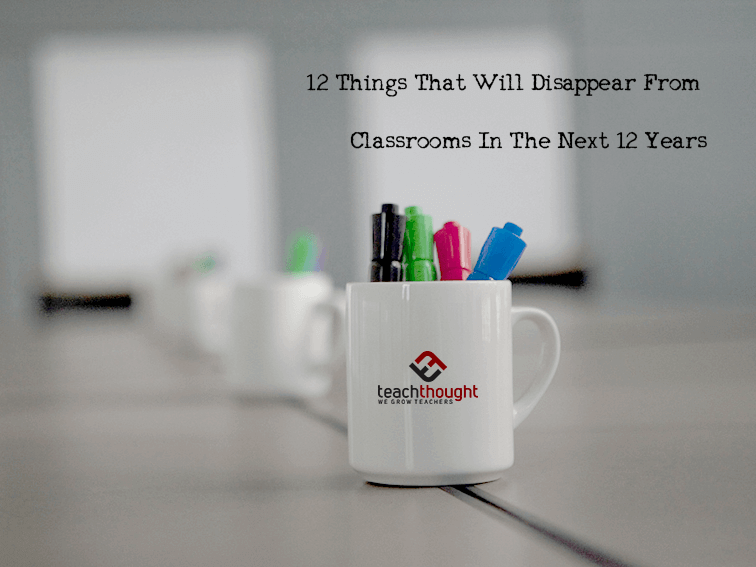
Desks, tests, computer labs, and more. Here are 12 things that could disappear from classrooms in the next 12 years.